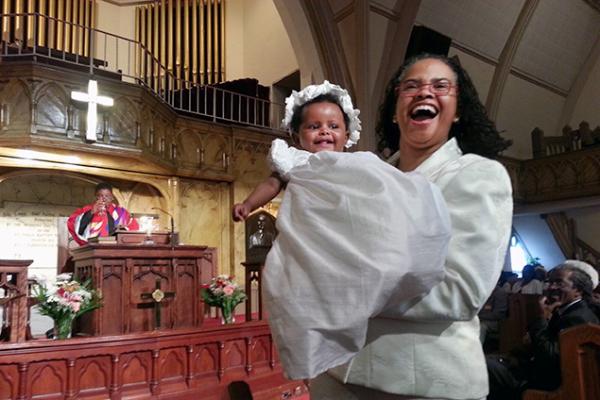Police cars have been repainted to say “Islamic police.” Women are forbidden from wearing bright colors and prints. The homes of Shiites and others have signs stating they are property of the Islamic State. And everyone walks in fear amid a new reign of terror.
That’s what life is like in Mosul, Tikrit, and other cities in northern and western Iraq under the control of Islamic extremists after their lightning-fast military campaign that overwhelmed the Iraqi army in June.
The new normal for these residents means daily decrees about attire and raids to root out religious minorities in a campaign to impose strict Islamic rule in cities that tolerated multiple religions for centuries.
Video courtesy of USA Today.
How partisan and unproductive is the current Congress?
The epitome of its dysfunction may have arrived with last week’s wrap-up before a five-week summer recess, as House Republicans failed to pass their own scaled-back bill on the border children crisis on Thursday. Realizing how bad that looked, lawmakers returned on Friday to pass an even more severe bill that had no chance of going anywhere.
But a better gauge of the problem may be the fact that despite the almost universal popularity of Pope Francis, the House of Representatives was unable to muster enough bipartisan support to pass a resolution lauding Francis’ election — nearly 18 months ago.
The bill, H.Res. 440, seems straightforward, as it aims to congratulate Francis on his March 2013 election and recognize “his inspirational statements and actions.”
Uganda’s top Anglican leader criticized the constitutional court for striking down the country’s controversial anti-gay law on a technicality, saying the law is still needed to protect children and families from Western-imported homosexuality.
A five-judge panel on Friday declared the Anti-Homosexuality Act, 2014, null and void since it was passed by parliament without the required quorum. Dismissing the law on a technicality maintains the possibility that it could be revived in a different form.
The law punishes homosexual acts with life imprisonment. President Yoweri Museveni signed the measure in February, drawing harsh criticism from Western nations and cuts in foreign aid.
Anglican Archbishop Stanley Ntagali called the decision a disappointment for the Church of Uganda, religious leaders and many Ugandans.
“The ‘court of public opinion’ has clearly indicated its support for the Act, and we urge Parliament to consider voting again on the Bill with the proper quorum in place,” Ntagali said on Monday.
St. Paul once reminded the argumentative folks in the ancient Corinthian congregation that they were as people gazing dimly into a mirror (1 Corinthians 13:12), hardly able to make out their faces staring back at them. His point was simply that the things we think we “see” really well in this life we actually see and understand rather poorly. And misinterpreted reality is the result.
The past several years have seen the release of two excellent films aimed at helping the Christian community understand immigration and the need for immigration reform. Gospel without Borders, produced by EthicsDaily.com, and the just-released The Stranger film by the Evangelical Immigration Table, are two great presentations Christian groups and others should view and discuss.
LUCHA Ministries, the faith-based group that I work with in Fredericksburg, Va., recently screened The Stranger film for about 50 people in our community. Like Gospel without Borders, this film features vignettes of families and individuals crushed by our nation’s merciless and nonsensical immigration system. Both also interview religious and secular advocates who affirm the need to fix the system in a way that respects human life and dignity, guarantees secure borders, and creates a pathway to citizenship.
I watch these films and listen to their appeals and wonder why we can’t get immigration reform done. It all seems so obvious. Perhaps Paul gives us some insight here. Perhaps it’s because, like all things including immigration reform, what we think we see has little to do with reality.
Before I knew God, I knew Joseph.
If you grew up in the 80s, like I did, there’s a decent chance that your earliest knowledge of Joseph’s story came through a local high school or community theater production of Joseph and the Amazing Technicolor Dreamcoat. That musical (by Broadway legends Andrew Lloyd Webber and Tim Rice) playfully (and rather faithfully) tells the story of a young boy, the favorite son of the patriarch Jacob, who sets in motion both a family and a geo-political drama by flaunting his fashionable coat. As a youngest child, I loved the story—I fancied myself as the favorite son, destined for greatness, who would one day be like Jacob, irresistible to the ladies. There is a time in life when each of us is made up of ego needs and delusions of grandeur.
American Jesuits are pushing members of Congress who were educated at the Catholic order’s schools to pass aid for thousands of refugee children who have surged across the border in Texas in recent months, calling proposals to swiftly deport them “inhumane and an insult to American values.”
“I ask you, as a leader, a parent, and a Catholic, to uphold an American tradition of which we are all proud,” the Rev. Thomas Smolich, head of the U.S. Jesuit conference, wrote to House Speaker John Boehner and 42 other House members who graduated from Jesuit high schools and colleges.
“We must welcome the refugee, the victim of trafficking, the child who has been abused or abandoned,” Smolich wrote in the July 29 letter. “Let us follow in the footsteps of Jesus when he said, ‘Let the children come to me, and do not prevent them; for the kingdom of heaven belongs to such as these.’”
Since last fall, more than 57,000 unaccompanied minors have flooded across the U.S.-Mexico border, mainly in south Texas, most of them from El Salvador, Guatemala and Honduras.
The migrants are often driven out by endemic violence in their home countries and drawn to the U.S. by prospects of better economic opportunities or the chance to reunite with their families.
But the influx has created a humanitarian crisis that has become a political wedge issue.
When Philadelphia’s St. Paul Baptist Church hired the Rev. Leslie Callahan as its first female pastor, in 2009, she was nearing her 40th birthday and the tick-tock of her biological clock was getting hard to ignore.
She delighted in her ministry but also wanted a husband and children in her life. The husband she couldn’t do much about — he just hadn’t stepped into her life.
Now Callahan is mother to 22–month-old Bella, who was welcomed joyously by what the pastor describes as “a pretty traditional Baptist church.” She describes Bella’s arrival as “a divine regrouping,” a different answer to her prayers than the traditional mommy-daddy-baby model she had envisioned.
Ever since unmarried sitcom anchorwoman Murphy Brown shocked much of the country in 1991 by deciding to raise her baby on her own, the culture has changed. Once unthinkable and later unacceptable, single mothers by choice today are met with less judgment.
In fact, according to federal statistics, more than 40 percent of births are to unmarried mothers. But what if, like Callahan, the single mom by choice is a minister, or a rabbi?
The issues sound like they belong on the therapist’s couch:
The couple that hasn’t had sex eight months into their marriage.
The parents who can’t deal with their son’s homosexuality.
The male teen who wants to be called by a girl’s name.
But they’re also the kinds of topics that frequently crowd the inbox of Russell Moore, who recently marked his first anniversary as the Southern Baptist Convention’s top public policy expert.
Though he often grapples with contentious political issues — the Hobby Lobby case, religious persecution, and, most recently, the immigrant border crisis — Moore has spent much of his first year at the Ethics & Religious Liberty Commission writing blog posts on Christian sexual ethics.
“Probably day to day I’m dealing with more church issues of how do we deal with these tough ethical issues,” he said recently.
In the northern Pacific Ocean, there is a giant whale named 52 Hertz. Scientists named him that because when he sings, the frequency of his whale song is around 52 Hertz. When other whales sing their songs, they sing at frequencies between 15 and 25 Hertz. His song cannot be heard by any other whale. He is known as the loneliest whale in the world.
Normally whales are communal creatures. They live their lives in family groups. They migrate from warm waters to cooler waters to give birth and find food. They follow the same migration route from year to year. 52 Hertz is different. He lives alone. He does not follow a migration route. He wanders the ocean, a lonely, wandering whale.
We do not know what kind of whale 52 Hertz is. He could be a deformed blue or fin whale. He could be a cross breed of those two types of whales. He could be a kind of whale we have yet to discover. He is an unknown whale.
Soon a team will set out on a seven-week expedition in search of 52 Hertz. Will they find him? Will he find them? Does he want to be found? I wonder.
In the Judeo-Christian tradition, God calls us to love and show compassion to the stranger, particularly those who suffer. But first, they must become real to us. And there is nothing more viscerally real, perhaps, than the face of a dead child.
Is it possible to let our hearts by broken by the dead children of our enemy? Is our God big enough to allow us to imagine that God loves those we fear and despise?
Not until, I believe, they have faces.
Iraq, Syria, Ukraine, Israel, Gaza – though religious fervor is alive and well in these embattled areas, loathing, horror, and hatred seem to reign, darkness to rule. In the grim night, we cannot see each other’s faces.







